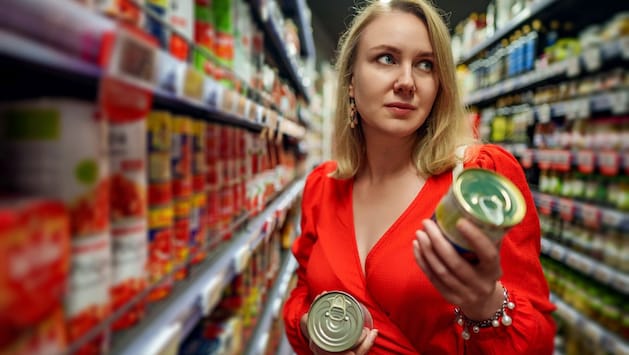Ravioli, stew, soup – when things have to go quickly, many people choose to eat from a can. The numerous preservatives in long-life foods are apparently only the smallest problem. As Stiftung Warentest has found, many products are contaminated with “particularly worrying” pollutants.
In a test, 58 cans were checked for chemical residues. Result: 51 of the products examined are heavily contaminated with bisphenol A (BPA), which is used to coat interior walls and is considered a health hazard. For this reason, the inspectors also advise against regular consumption: “The less of it on the table, the better.”
Bisphenol A is a known problem: The pollutant has already been detected in drinking water, in Pixi books for small children and in human urine. Due to its effect as a hormone poison, the chemical can have various health-endangering effects on the human organism, according to Stiftung Warentest. Among other things, it is said to have a negative impact on fertility.
The European Chemicals Agency (ECHA) lists the pollutant as “of very high concern” on a list of chemicals of most concern published in April 2022. However, it is not clear what amount consumed per day can lead to harmful health consequences. However, on the other hand, it is virtually impossible for consumers to determine how much of the chemical they are consuming based on the products they purchase.
People mainly consume bisphenol A through food. When it comes to canned food, it can happen that the substance comes off the can coating and gets into the canned food.
According to Stiftung Warentest, among other things, soups and stews, of which relatively large amounts are consumed, are heavily contaminated with bisphenol A. A vegan tuna alternative also attracted particular attention.
Surprisingly, the testers found almost no traces of bisphenol A in another product group. Condensed milk in cans therefore appears to be completely uncontaminated with the chemical. Cans filled with peas and carrots are also only slightly contaminated. Coconut milk and canned tomatoes also have a lower impact compared to stews and pasta dishes.
The original for this article “Toxic chemicals in canned food: “The less of them on the table, the better”” comes from Teleschau.









